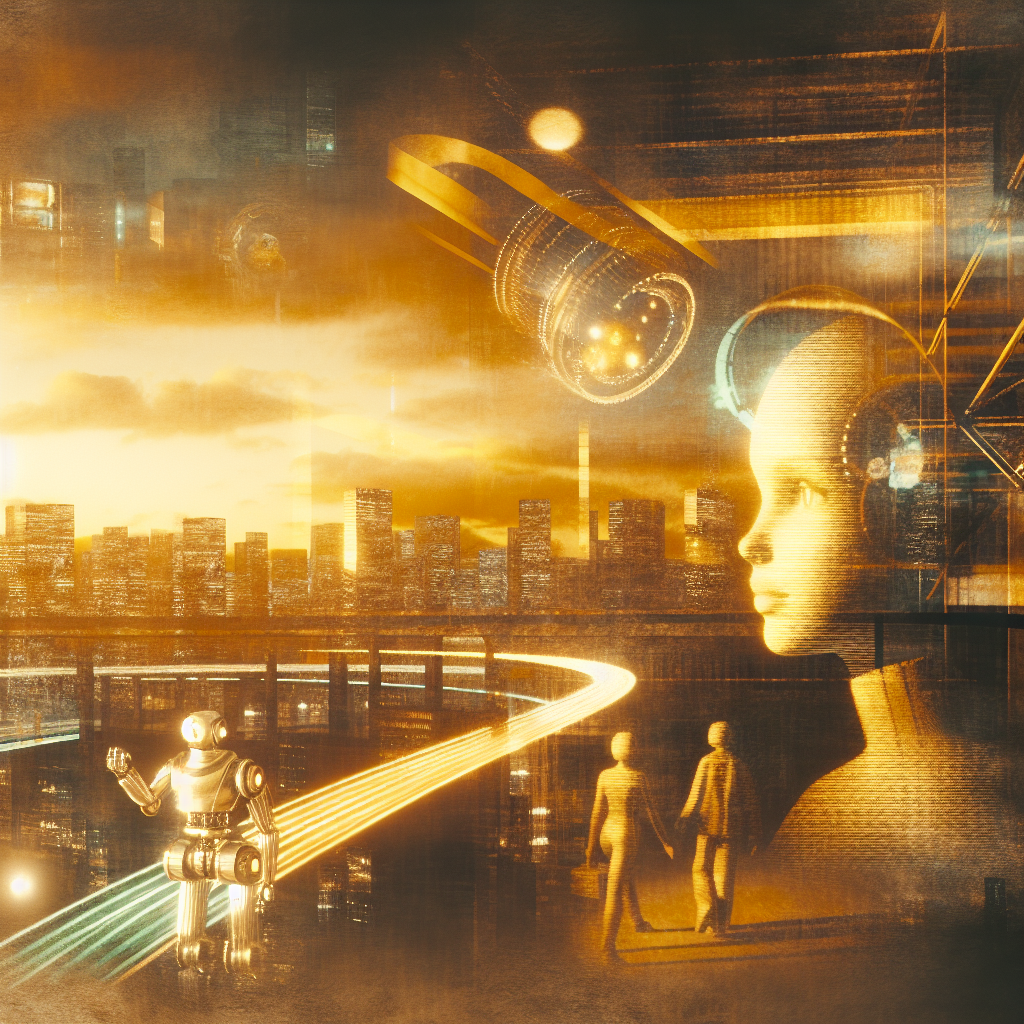
Artificial Intelligence: Potential vs Reality
Artificial Intelligence (AI) has undoubtedly made incredible advancements, from enabling self-driving cars to generating surprisingly human-like text responses. However, before we begin to envision a dystopian future of AI world domination, it’s crucial to understand that we are far from realizing such a scenario. Despite its impressive progress, **Artificial Intelligence isn’t ready to dominate the world yet.** Its current state still suffers from critical limitations, technical challenges, and ethical dilemmas that impede its ability to take control of human society fully.
Why Artificial Intelligence’s Capabilities Are Misunderstood
AI is often perceived as an all-knowing, rapidly self-improving entity thanks to Hollywood depictions and sensationalized news stories. But the truth is far more nuanced. Current AI systems rely on advanced pattern recognition and machine learning to perform tasks, but these technologies are not the same as genuine intelligence or autonomy.
AI’s Reliance on Human-Generated Data
At its core, modern AI systems are heavily dependent on large sets of human-generated data. This reliance introduces several limitations:
- Lack of Creativity: AI lacks true originality because its “creativity” is limited to recombining existing data.
- Bias Issues: If the training data is biased (intentionally or unintentionally), the AI can perpetuate and even amplify these inequalities.
- Narrow Applications: AI excels in narrowly-defined tasks but struggles dramatically with tasks outside its training scope.
For example, language models like OpenAI’s GPT systems sound human-like but cannot generate truly independent thoughts or solve problems outside their narrow focus.
Complex Human Skills: A Major Barrier
While AI can assist in many areas, from diagnosing diseases to automating customer support, there’s a significant gap when it comes to mastering **complex human skills** such as empathy, ethics, and nuanced decision-making. AI currently lacks the capacity for:
- Emotional Intelligence: Machines can’t feel emotions, making tasks like counseling beyond their reach.
- Common Sense: AI struggles to understand basic human logic or context, which is often taken for granted by humans.
- Ethical Judgment: AI systems can follow ethical programming but lack the ability to make moral decisions independently of their programming.
Technological Barriers to World Domination
The dream (or fear) of Artificial Intelligence leading to total automation or a “robot revolution” faces significant technological hurdles. Despite its rapid development, AI systems are far from the omnipotent force many imagine. Let’s dive into the main barriers.
Energy and Computational Limits
Current AI models require tremendous amounts of computational power and energy. Training a system like ChatGPT-4, for instance, can consume as much energy as powering several households for a year. This is not only an environmental concern but also an economic one:
- Highly Expensive Infrastructure: AI development is still prohibitively expensive and unsustainable at scale.
- Energy Consumption: An AI-dominated world would exponentially increase energy demand, straining global resources.
Such infrastructure needs mean AI is far from scalable to a level where it can dominate industries or, let alone, the world.
Unsolved Issues in Machine Learning
AI still hasn’t reached the point where it can learn “unsupervised” or adapt in real time to unforeseen circumstances. Most current systems rely on supervised and reinforcement learning, which require significant human oversight. Some major challenges include:
- Overfitting: AI systems often “memorize” data too rigidly, making them less effective when conditions change.
- Limited Generalization: AI can excel in specific tasks but fails miserably when asked to generalize—for example, a chess AI wouldn’t perform well at Go without retraining.
- Fragility: Small input changes, such as a typo, can cause AI systems to malfunction or produce wildly incorrect outputs.
The Human Factor: Ethics and Regulation
Even if AI became technologically capable of “taking over,” society has set up numerous barriers that prevent it from doing so. From ethical dilemmas to tight governmental oversight, any widespread deployment of AI faces significant challenges.
Ethical Complexity
AI is only as ethical as the humans who design it. As we program these systems, we embed our values, reasoning processes, and biases into them. This creates considerable constraints to AI systems scaling to dominate the world:
- Algorithm Bias: Biased data creates discriminatory systems, raising legal and ethical concerns.
- Privacy Violations: AI-enabled surveillance has sparked significant backlash over privacy rights and civil liberties.
- Lack of Responsibility: It’s unclear who is liable when an AI system makes a critical error: the developer? The operator?
Governmental and International Regulation
AI regulation is gaining traction worldwide, as countries aim to balance innovation with security and ethics. These measures provide a form of “checks and balances” for AI deployment:
- Global Oversight: International organizations are focusing on creating global AI ethical guidelines, such as UNESCO’s AI Ethics Recommendation.
- Localized Laws: The EU’s Artificial Intelligence Act demonstrates how governments can regulate to ensure AI remains within acceptable societal boundaries.
- Licensing and Audits: Regulatory bodies often require companies to subject their AI systems to third-party audits and transparent reporting.
A Limited but Bright Future
The fact that **Artificial Intelligence isn’t ready to dominate the world yet** should not undermine the value it brings to humanity today. AI is a highly effective tool when used correctly and ethically. From enhancing healthcare diagnosis to improving logistics, it offers tremendous utility across industries. However, the significant technological, ethical, and regulatory barriers mentioned above ensure that dreams of AI supremacy remain squarely in the realm of science fiction—for now.
Artificial Intelligence’s future will likely be as a collaborative force rather than a dominating one. By amplifying human intelligence and productivity while remaining under human control, AI promises a brighter and safer future.
Relevant Internal Links on AiDigestFuture.com
- The Future of AI: Opportunities and Challenges
- Understanding AI Ethics in a Developing World
- AI vs Human Intelligence: Key Differences
- Top AI Applications Revolutionizing Business
- 5 Major Machine Learning Challenges in 2023
